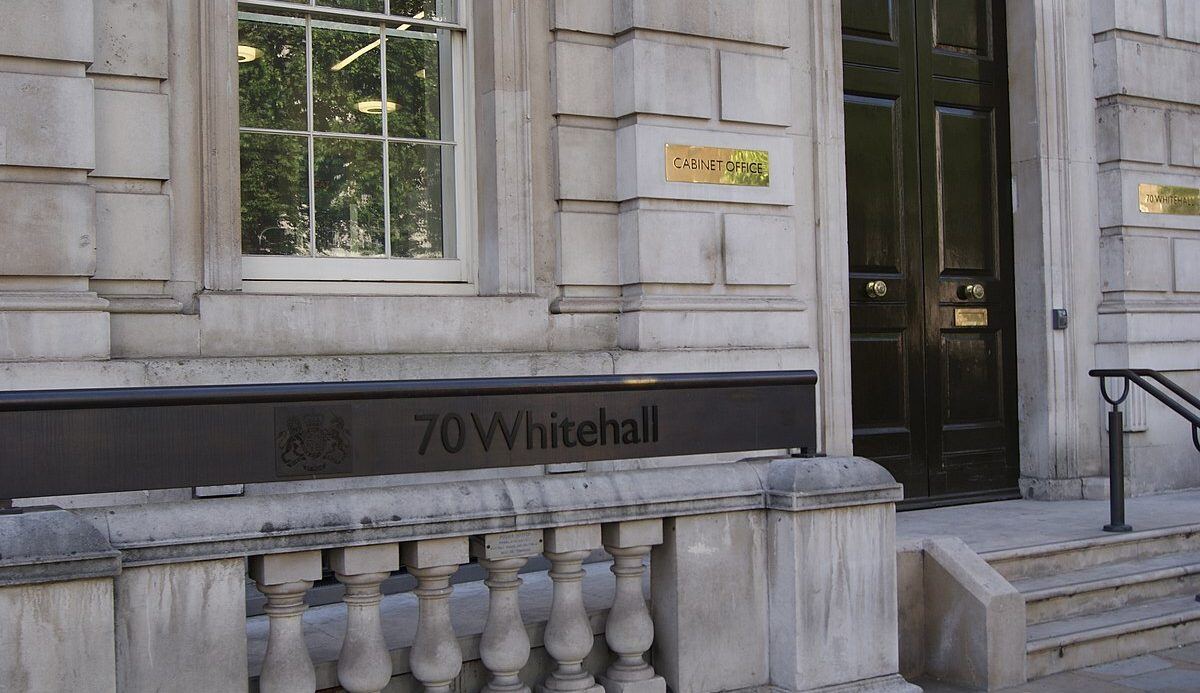UK Government Resilience Action Plan
Context
1. The risks that the UK faces are volatile, varied and interconnected. The UK government’s National Security Strategy (NSS) published on 24 June describes an outlook for the UK of geopolitical uncertainty, greater exposure to economic shocks, rapid technological changes and persistent transnational risks such as climate change. “Security at home”, including domestic resilience, which this action plan focuses on, is a fundamental element of our National Security Strategy.
2. This action plan sets out further detail on our plan to strengthen our domestic resilience and how the UK government is investing to protect the nation, defining our objectives and the actions we will take to become more resilient. It is underpinned by the UK government’s recognition that these era-defining challenges create risks that, ultimately, can impact our everyday lives. They can disrupt our public services, our infrastructure, our health, our communities, our national defence, the environment and the economy. Furthermore, these consequences do not fall evenly across our society, so assessing and planning for people who are vulnerable in different types of emergencies is also core to our action plan.
3. The UK relies on the extraordinary commitment and professionalism of thousands of planners and responders to deliver our system of civil protection. Empowering and supporting this network of organisations to operate at their best is fundamental to our approach, and this action plan focuses on where we can maximise their efforts, including through the use of science and technology.
4. However, lessons from crises at home and abroad show how everybody across society can contribute to protecting a nation against disruptive events. This might include individuals and households being prepared to keep themselves and others safe in the event of a major power outage, businesses delivering critical services being ready to respond to supply chain disruption caused by global events, or voluntary, community and faith groups being able to effectively engage and coordinate with responders to support the groups they work with. This action plan sets out steps the UK government will take to drive this type of action across society, creating a collective response to a collective challenge.
5. The action plan reflects the conclusions of UK government’s review of resilience, which it made in response to COVID-19 Inquiry Module 15 and the Grenfell Tower Inquiry. The UK government was not as prepared as it should have been for the COVID-19 pandemic. We are committed to learning lessons from these Inquiries and more broadly. Our proposals build on recent work to learn from past events, and push us further.
UK Government’s work on resilience
6. This action plan defines ‘resilience’ as the ability to anticipate, assess, prevent, mitigate, respond to, and recover from natural hazards, deliberate attacks, geopolitical instability, disease outbreaks, and other disruptive events, civil emergencies or threats to our way of life.
7. The UK government plans, through the relevant Lead Government Department (LGD) for every risk in the National Security Risk Assessment (NSRA). This is a very wide range of risks - from a pandemic, to a terrorist attack, to flooding. For the most serious risks that have the potential to impact the whole of society, the Cabinet Office takes on a leadership role, alongside the LGD, to coordinate action across the UK government, working with the devolved governments as required. The work done to prevent, mitigate, respond to and recover from these sorts of events focuses on how to deal with the particular challenges that would arise in those crises.
8. However, we cannot perfectly predict how risks will unfold, and across all risks we need some common systems and tools to respond. For this reason, the UK government also works to improve the general resilience of the nation to all risks - the ‘all hazards’ approach. This is consistent with the approach in the recently published Strategic Defence Review, which highlights our new ‘NATO First’ ambition and the widening of whole of society participation in resilience. It is part of our work to develop National Resilience Goals, in line with NATO’s 7 Baseline Requirements for Resilience and the Alliance-wide Resilience Objectives.
9. While this action plan focuses on work to build resilience to all risks, the UK government’s investment in responding to specific risks is integral to our resilience. Examples of risk-specific investment and activity - such as £4.2 billion for flood and coastal erosion resilience and up to £520 million for the Life Sciences Innovative Manufacturing Fund, are explained throughout the action plan. The UK government also regularly publishes other work relating to specific risk areas including the implementation report on our Biological Security Strategy which is published alongside this action plan, addressing our work to address the range of biological threats including pandemics.
10. Finally, the UK government’s Plan for Change is essential to how well prepared the UK is for a difficult situation. For example, a strong healthcare system and secure energy supply, key objectives of the Plan for Change, mean that the UK is better able to respond and recover from shocks and crises. Recent publications such as the Industrial Strategy - which contains measures to improve the resilience of our supply chains - and the 10 Year Infrastructure Strategy - which sets out our commitment to build resilience infrastructure such as flood defences - are part of a wider picture of how the UK will be stronger against the risks we face. Resilience is not achieved without a strong economy and effective public services.
The Resilience Action Plan’s objectives
11. Citizens in the UK should live in a society that is as resilient as anywhere else in the world. The Resilience Action Plan will deliver against three objectives in this Parliament to:
1. continuously assess how resilient the UK is to target interventions and resources effectively
2. enable the whole of society to take action to increase their resilience
3. strengthen the core public sector resilience system
12. All four nations of the United Kingdom share the common objective of protecting citizens from crises, with resilience encompassing both reserved and devolved matters. The action plan focuses on actions primarily for England, UK government departments and in areas where responsibilities in Scotland, Wales and Northern Ireland are reserved to the UK government. While significant aspects of resilience are wholly the responsibility of the devolved governments, the UK government is committed to working in partnership to align policies and facilitate closer cooperation for the benefit of all our citizens. For example, the UK government is delivering a secure database mapping the UK’s critical national infrastructure (CNI), but this requires working closely with devolved governments who are responsible for a number of CNI sectors.
13. Resilience structures and processes vary among the devolved governments, and include a combination of both reserved and devolved competencies and responsibilities. Following lessons identified from the COVID-19 pandemic, Scotland is working on improvements to its resilience landscape based on commitments outlined in the response to Module 1 of the COVID-19 Inquiry and Northern Ireland completed its review of resilience arrangements and published the new NI Civil Contingencies Framework in 2021. The NI Civil Contingencies Framework undergoes annual review, with a substantive review scheduled for 2025/2026. Having undertaken a review of civil contingencies in conjunction with the responder community, the Welsh Government has published the Wales Resilience Framework and a supporting Delivery Plan. The First Minister has also taken steps to strengthen Wales’ resilience governance and oversight structures. The UK government continues to collaborate with the devolved governments and has established a Four Nations Ministerial group to address and align resilience issues. An update on resilience arrangements for each nation will be provided in due course.
Read the full strategy below.
Source: UK Government: https://www.gov.uk/government/publications/uk-government-resilience-action-plan
The Critical Supply Group consists of companies and professionals committed to secure and resilient critical supply chains. CSG is managed by MAP UK & International. For more details, including how to get involved, or to make contact with any of the entities involved, please email info@mapukinternational.com.
.png?quality=high&width=300&height=141&name=CSG%20Logo%20c%20(1).png)


